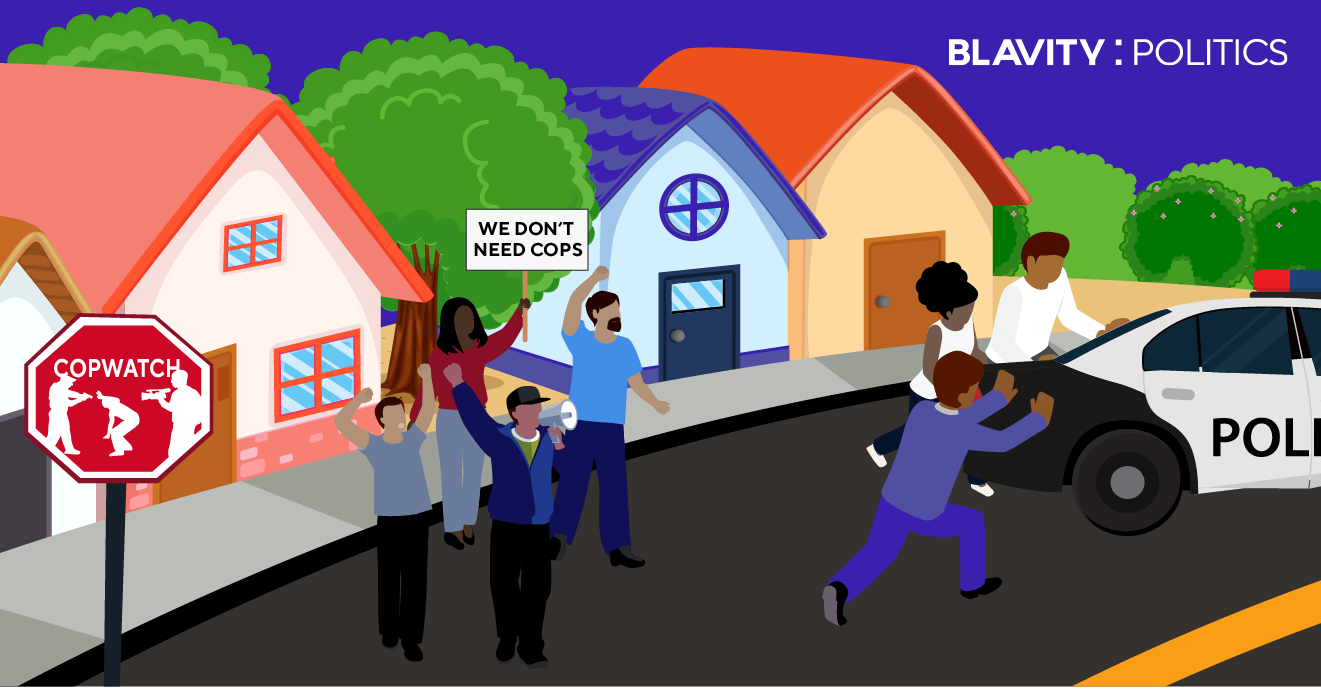There is an idea that public safety cannot exist without the presence of police and law enforcement; however, the history of policing will show a different story. The concept of police officers was established by Europeans who immigrated to Turtle Island (later known as the United States). Federal law enacted these white people as vigilantes who were required to report, catch and punish any enslaved people who ran away from plantations during slavery. As police forces became more established, officers included property crimes into their repertoire, where "property" included enslaved people. Even after the abolition of slavery, Black people were policed by federal and state laws that restricted both their movement and rest. With private police forces protecting corporations and landowners from workers’ revolts and prospective Black renters, harsh policing was always forced onto the everyday lives of Black people.
Historically speaking, police have actually brought in more violence because they were originally intended to be an enforcement of racist laws and practices. According to Mapping Police Violence, there were only 23 days in 2018 where people in the United States were not killed by police. Black people made up 25% of those killed, even though they make up only 13% of the U.S. population.
In today's world, community members know their neighbors and neighborhoods better than law enforcement, and recently, there have been more instances of neighbors banding together to take care of each other in the face of police violence. For example, when ICE started raids to deport undocumented folks, there were reports of neighbors physically blocking entrances to prevent ICE officers from entering. After the resistance, officers had no choice but to drive off without capture.
So, instead of calling 911 and inviting law enforcement into your neighborhood for insignificant matters, use these strategies to protect yourself and your people.
1. Have a cop watch, not a neighborhood watch.
Neighborhood patrols are notorious for reinforcing police practices. Community patrols have acted as officers in their own right and have often been given the same protection as police officers. This was evident in the Trayvon Martin case, where George Zimmerman was seen as a community vigilante who made numerous calls to 911 and was still found not guilty for manslaughter. Cop watches do not bring police into the neighborhoods. They, instead, guard civilians from police officers through exercising basic rights and recording police activity. A cop watch can be rotational, with community members assigned to cover designated streets. Keeping the neighborhood free of police violence is often safer than most neighborhood conflicts.
2. Throw a neighborhood get-together.
The best way to get support from your community members is by getting to know them. Thirty-one % of U.S. adults know all or most of their neighbors, while only 24% of people living in urban neighborhoods can say the same. By hosting gatherings or even a block party, it creates intimate moments with your neighbors that make it much easier to take care of them. For example, Night Out for Safety and Liberation is an event that helps neighbors redefine public safety and allows people to get to know each other on a more personal level.
3. De-escalate and separate when things get heated.
When issues do arise between neighbors and community members, many people do not want to step in to help. However, most incidents, such as domestic violence or arguments between loved ones, can be defused by separating the parties from each other. Having them cool down and step back from the situation can offer clear heads and a moment to breathe before any violence can ensue. Even when violence erupts, it's usually not targeted toward the community members who step in. The purpose of stepping in is to redirect the energy away from those in the altercation and act as a mediator.
4. Share your resources and time with others.
Everyone has something to give. Look into the abundance of resources that you have to fulfill what is needed in your neighborhood. If you don’t have the things that you need, reaching out to fellow community members and neighbors can provide you with more options. Giving back to your community establishes a sense of solidarity that makes the community interdependent on each other. If someone causes harm to you or your space, such as crashing into your car, see if the guilty party can volunteer their time or resources to help out with any needed repairs. By giving to one another through non-monetary means, people can build connections and offer what they have rather than make it a purely transactional relationship. This also keeps out outside agents, such as insurance companies and ambulances, who suck out money from communities. Use a time bank or a community fund to replenish what needs to be fixed.
When we look out for our own people, we usually get the help that we need. Policing has frequently brought escalation, with little regard for meeting the needs of the community. Our communities need to be taken care of by the people within them. Locking people in prison and having police patrol us has not always made our neighborhoods safer. Instead, they have made Black people more afraid for their own safety. Rebuilding community safety will take some time and effort, but working together will bring the necessary solidarity, so leaning on each other will no longer seem uncomfortable.
